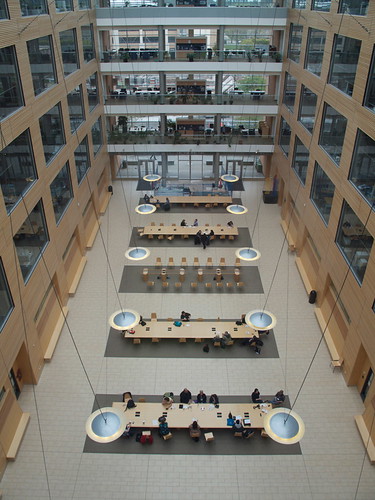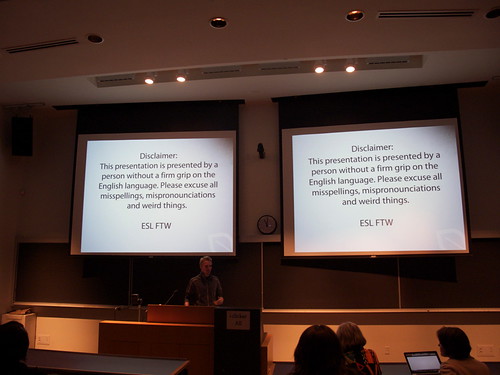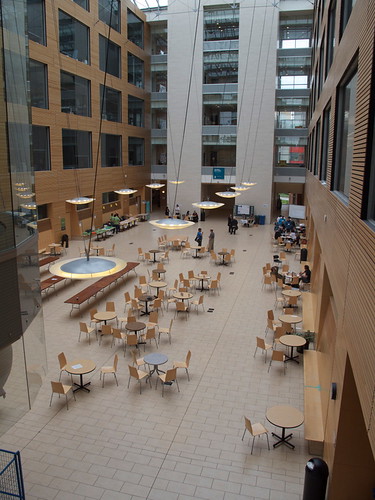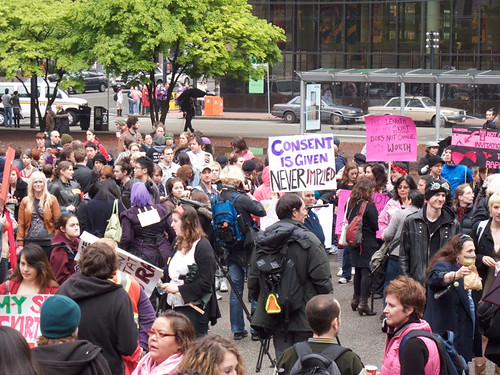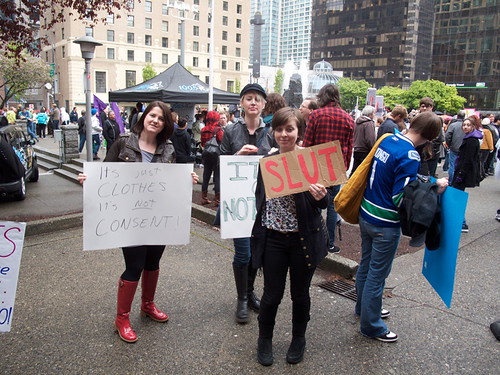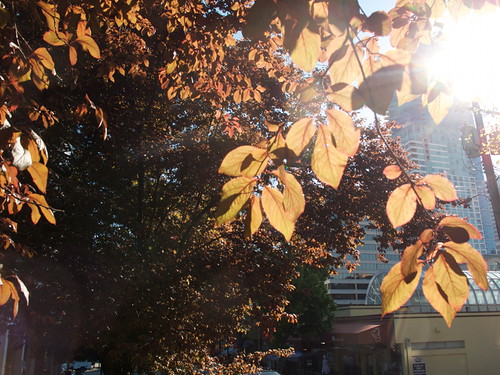It all started with window signs. No, wait, it really started with Bill C-51. When the entire liberal caucus (including my MP, Dr. Hedy Fry) voted in favour of it, at least partly out of politics, I started seriously considering switching my vote to another party. It took me a while to decide, because that’s how I roll. I’m not really a Liberal supporter—my heart is more progressive than that—but C-51 notwithstanding, Fry had done a good job for Vancouver, right? Plus, she seemed a safe bet and there seemed little point in voting for someone else.
Then one day I ran into Constance Barnes, the NDP candidate, schmoozing with the summer crowds at Nelson Park. And I really, really liked her. She seemed super friendly, full of energy, sharp and on the ball. I told her about my feelings, and apparently I wasn’t the only Liberal voter thinking of jumping ship. So hey, maybe voting NDP wouldn’t mean throwing away my vote?
The next small step, once I’d made my decision, was to get a couple of orange window signs. The campaign headquarters was just a few minutes’ walk away, so I swung by there one night on the way from work. They were happy to give me the signs, and asked if I wanted to volunteer as well. I sort of stammered and said I’d think about it.
The truth is, part of me wanted to get involved, and part of me didn’t. On the one hand, partisan political activism was new to me. The most I’d ever done was talk and rant, and repost anti-Harper articles—but who on Facebook hasn’t done that? Actively committing to a candidate was a big step, and kind of a scary one. What if she lost? Then I’d be even more disappointed, having put out all that energy for nothing. And what if I backed the wrong candidate?
On the other hand, this was an important election. Priority #1 was to get Harper out, yes, but Vancouver Centre was a safe non-Conservative riding, so I was free to vote with my conscience. And wouldn’t it be nice to get an NDP government in, to roll back as much of Harper’s crap as we could? As for my other fears, well, sometimes you just have to take a shot. Living in fear of getting hurt or making a mistake is no life at all, and that was a habit I needed to break. If I could make a difference, that was worth a little risk.
So about a month before the election, I signed up to volunteer with Constance’s team. At the first orientation meeting, they asked the new blood to fill out a couple forms, including what tasks they were interested in, and on what days. What did I feel up to doing? Data entry was an easy choice. I had a car, so I could run errands and drive people to the polls. Inside scrutineering sounded super interesting too. What about other stuff, like canvassing (going up to voters in their homes) or mainstreeting (ie: setting up shop in a park or other public place, and letting people come to you)? Part of me wanted to dive in and really push my limits, but part of me wanted to play it safe. Introverted as I am—cue horrible flashbacks of lil’ me as a cub scout selling candy bars—I didn’t feel I’d be much good chatting with voters in person. On the other hand, I have been making a lot of progress in that area, so maybe I should give myself more credit than that? On the other other hand, wouldn’t I be more useful doing things I was actually comfortable with?
In the end I decided I just didn’t feel up to of canvassing or mainstreeting. But there was lots of stuff I ended up doing. Data entry, for one. Gotta keep our list of voters up to date, so that they’re not called twenty times even after they’ve voted! All campaign offices are provided with voter lists (identifying people but not who they voted for). At one point I did a short shift of calling voters to remind them of advance polling dates—a nice break from data entry, but pretty exhausting. Even with prepared scripts, calling up strangers is really not my jam.
I also drove several elderly NDP supporters to the polls, which was a different kind of challenging. See, I’ve hardly ever driven in the West End; all those one-way streets, traffic-calmed intersections and resident-only street parking are great for pedestrians and cyclists, but not so great for drivers. Maybe I should have practised a bit beforehand? It all worked out fine in the end, though, and now I have a better idea of how to get around and park as close as possible to my destinations. For King George High School, park either on the street or under the West End Community Centre. For the Stanley Park Golf Club, try to squeeze into the little driveway thing off Beach Avenue and hope that’s close enough. Just as importantly, it opened my eyes to whole different ways of perceiving my neighborhood: a single block can be a tedious loop taking five minutes, plus five more minutes looking for a parking spot, Or, then again it could be an intimidatingly long trek especially if you then have to wait in line for an hour.
The really interesting job, though, was inside scrutineering. As I said, it was totally new to me, but it makes perfect sense it invites participation to the election process (both voting and counting). Just like scientific inquiry, the more eyes you have the better; everyone has the opportunity to learn and help make the whole thing go as smoothly and fairly as possible. I am proud to live in a country that allows this, and I intend to keep giving back in future elections.
Sadly Constance Barnes did not win, as Hedy Fry handily kept her seat with about 50% of the votes. And yes, I was disappointed. But you know what? This isn’t the end. I still believe in the NDP, I still believe in Constance, and I’ll do my best to help her if and when she runs again. This won’t be new territory for me; I have new skills, new confidence, and I’ll be able to do a lot more next time.
On that topic, I had the most amazing revelation at the post-election party. I’d been feeling vaguely guilty about the volunteering I’d done, wondering if maybe I should have pushed my envelope a bit more. If I had, if I’d committed more, maybe that would have put Constance over the top? There’s no satisfying answer to that question, but here’s the thing: when I spoke to some other volunteers at the party, they all felt the same way! It just goes to show: we’re not alone in our fears. And that makes me feel a whole lot better about mine.
This post has been a long time percolating, and I considered abandoning it a few times, thinking it Old News. But no, it’s never too late. And with the new year coming, it seems like a good time to post it. Though I’m still digesting the lessons it taught me, I feel this volunteering gig was the first step towards something new. I’m eager to see what 2016 will bring me, and what I will bring to it.
